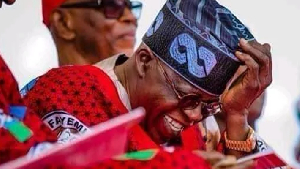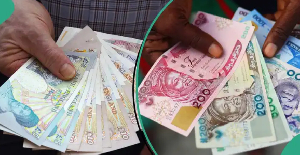Sports News of Saturday, 28 June 2025
Source: www.punchng.com
Why I switched from Nigeria to Canada – Igali
Nigeria Wrestling Federation president Daniel Igali talks about his career, representing Nigeria, his time in Canada and more in this interview with PETER AKINBO
How did you get started in wrestling?
When you are born in the Niger Delta, especially in my part of the Niger Delta, Bayelsa, virtually every child wrestles at some point, but it’s more traditional wrestling. So when we grew up, it was essentially swimming because we were surrounded by rivers so we learnt how to swim. You grew up not knowing when you learnt how to swim because it’s when you were three or four that you started swimming. Then it was wrestling because that’s what everybody else did. The people you respected the most in town were the wrestlers, you know, the champions. Maybe football was the other thing. So I clung to wrestling at a very young age.
What made you choose it as a profession later on in your career?
I think I must have been a bit talented in the sport because I remember at the age of 10, I was wrestling with kids who were a year or two older than me because all my age mates could not wrestle with me anymore. But then, at the age of 10, I remember an athlete who had gone to the ‘84 Olympics. He had returned from Los Angeles and we had this day where he came to our village. We were just talking about his experience going to Los Angeles, and how they flew on a plane. Before then, for him to qualify to go to the Los Angeles Olympics, they had to go to Egypt for the qualifiers and they flew by plane. So I wanted to go to the Olympics because I thought that was the only way to fly by plane. Then, Egypt for me was not on Earth. At the age of 10, I thought Egypt was in heaven because we read about Egypt in the Bible. So it was such a big deal. I thought if a wrestler could go to Egypt and also to Los Angeles on a plane, then that’s what I wanted to do.
How did your parents react to your interest in wrestling?
I don’t think it’s something that my parents endorsed, especially my mum. My mum was completely against it because it was at the time just traditional wrestling. I always got in trouble. For most breaks in school, I would go and be wrestling with my mates. I would go back dirty to class and get strokes of the cane. So there wasn’t a future in wrestling at the time, nobody grew up wealthy in this sport. My mother was a professional teacher, and both my parents went to England on scholarships. For seven years, my dad was a chartered accountant. So they didn’t think that wrestling was the way for me to go. It was just something that I clung to at a very young age, and I thank God that it worked out well.
Did your commitment to wrestling affect your education?
I didn’t abandon school for wrestling if that’s what you mean. At 17, I got an admission to university. At the time, I had two or three of my older ones already going to university. So I had to postpone mine until one of them left because we couldn’t be four at the time. But I eventually also did what my dad wanted, and went to school and got the degrees he wanted.
Do you know when your parents started to change their minds?
Yes. In the beginning, my mum was the one who was against me being involved in it because apparently, they had a very bad experience. As a kid, our grandfather who was a champion passed away because, in this traditional wrestling, there are a lot of ‘juju’ things that they do. So it was attributed to ‘juju’ that our grandfather was bewitched by another wrestler from another village and was sick for a while and died or something like that. So she had very bad feelings about me continuing but my dad over time became very supportive and it made things a lot easier for me. He became very supportive so my mum did not have to be against it. My wife also is supportive of me, especially when I started getting on the national team.
Did you ever feel like quitting the sport?
There was one time that I really looked at sports, and I think after that I probably didn’t get on the mat for almost two weeks. Then I was at the University of Jos, and it was in 1992, we were going for the 1992 Olympics. It was the qualifiers, and I was in the 57kg category at the time, but you weigh about 62, 63, 64, so you have to cut about 6-7kg to get to your weight class. It had become such that funds were not available immediately, up until almost the last minute. They had requested that we be on our way because we would get there the next morning and we would weigh in and almost start competing. So for almost two days, we were without food, we were trying to starve ourselves, we were at the airport in Lagos, and then all of a sudden, they came and picked six out of all of us and said those were the ones that were going because the funds were not available. I think that was the biggest disappointment I have ever had as an athlete. When I went back to Jos, I seriously contemplated my future involvement in the sport. For almost two weeks, I didn’t practise, but then, the love overshadowed everything and I had to go back again.
What was your feeling like when you first got your national team call-up?
It was fun. Of course, at the time, I had never travelled. I had not been anywhere. So 1991 was my first national team call-up. I was just out of secondary school, I was about 17 and I got called up to the national team for the Cairo 1991 All-Africa Games. I made the team and had my first opportunity to travel to Bulgaria on a training tour. I still remember the exhilaration, the excitement, getting on a plane, taking pictures, all the things we did. It was a night flight, I think it was around 10 or 11, and it was a direct flight to Sofia. I remember I didn’t sleep all night because I was so excited and then eventually we went to Cairo. I won a silver medal in my first outing. It was a thing of pride, my parents were some of the proudest people, my classmates in school. And then wrestling became a very popular sport, not just at the traditional level, but because people now saw that one of them who was young, who was now wrestling and getting in trouble all the time in school, was now an international, and was now coming back home, sharing pictures, going and speaking to kids about the opportunities out there, making it a bit more popular at the time.
So from then on, how was your experience in the Nigerian national team?
It was good. I think by 1994 I was now about 20 and they made me captain of the team. I think I was probably the youngest captain of the team. Up until I think the Commonwealth Games.
What challenges did you face as part of the national team?
A lot of things were happening and those were the things that eventually when you become an administrator, you want to change. You can’t have athletes in camp, they will stay in camp for three weeks or four weeks and then you will have to send everybody back because there is no money. Money was not approved for this competition or you would just take two people out of maybe ten. Of course, at the time you had the political administration, because I think (Sani) Abacha was then in power. All the things that were happening at the time led to some of the decisions one had to take when we eventually went to Canada.
Despite the challenges, did you enjoy your time with the Nigerian team?
I must tell you, I had a fun time on the national team. I had some older people who mentored me. I had a coach who I adored. As the saying goes, ‘Once you’ve wrestled, everything in life becomes easy.’ Wrestling was for me about the work ethic it taught you, the discipline. It’s a very tough and rigorous sport. You virtually need every athletic attribute to be good at it. You need to be strong, you need to be flexible, and you need to think on your feet. You need to take a man that is standing up to the ground. One of the most difficult things you can ever do so that is what I do enjoy about the sport. But I must tell you, I had a lot of fun times on the Nigerian national team.
Was there a final straw that led to your decision to switch from Nigeria to Canada?
So the Commonwealth Games was probably the biggest tournament I attended for Nigeria then. But before that, I got into the University of Jos in 1992, by 1993, 1994 I was already in my third year. Unfortunately, each time I was representing Nigeria at the African Championships, which were 1992, 1993, and 1994, I would always be going to the African Championships when I was writing exams. There was once that even the coach had to fly down to Jos to go and talk to the head of the Department of English because I was studying English then, to allow me to write my exams when I returned. I was carrying over 11 courses before I left the country. That is how sad it is, and that’s why like now, with the Niger Delta University, those are the discussions we are having with the management. At the University of Port Harcourt, they have done very well. The Professor and his team have done extremely well with athletes who represent the university and the country, where they’ve been able to have a leeway to go to competitions, come back and still have their opportunities to write either tests or exams so you don’t have carryovers or have to repeat classes, just because you are combining sports and education.












